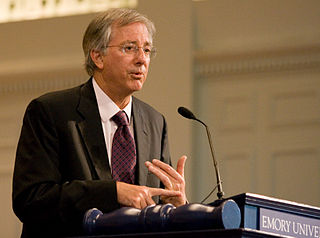A Quote by Hillary Clinton
I think wherever we can cooperate with Russia, that's fine. And I did as secretary of state. That's how we got a treaty reducing nuclear weapons. It's how we got the sanctions on Iran that put a lid on the Iranian nuclear program without firing a single shot.
Related Quotes
It was Hillary Clinton who worked with Russia on the New START Treaty to reduce their nuclear weapons stockpile. It was Hillary Clinton that worked with Russia to get them engaged in a community of nations to stop the Iranian nuclear weapons without firing a shot. She's not going around praising Vladimir Putin as a great guy. But she knows how to sit down at a table and negotiate tough deals. This is a very challenging part of the world, and we ought to have a commander-in-chief who is prepared and done it, rather than somebody who goes around praising Vladimir Putin as a great leader.
What is the only provocation that could bring about the use of nuclear weapons? Nuclear weapons. What is the priority target for nuclear weapons? Nuclear weapons. What is the only established defense against nuclear weapons? Nuclear weapons. How do we prevent the use of nuclear weapons? By threatening to use nuclear weapons. And we can't get rid of nuclear weapons, because of nuclear weapons. The intransigence, it seems, is a function of the weapons themselves.
Sanctions did indeed help to bring Iran to the negotiating table. But sanctions did not stop the advance of Iran's nuclear program. Negotiations have done that, and it is in our interest not to deny ourselves the chance to achieve a long-term, comprehensive solution that would deny Iran a nuclear weapon.
Iran's Supreme Court has issued a fatwa against the development of nuclear weapons. President [Hassan] Rouhani has indicated Iran will never develop nuclear weapons. I've made clear that we respect the right of the Iranian people to access peaceful nuclear energy in the context of Iran meeting its obligations.
Yes, I think lots of people are eager to obtain weapons of mass destruction. But there's no evidence that he has weapons of mass destruction. There's been no evidence of him testing nuclear weapons.
We have people that are in our face with nuclear weapons. We've got Iran and North Korea. We've got a problem with Pakistan. You know, I don't know what to say about that.
There's a whole lot of people that are going nuclear. And I think that Saddam Hussein is actually, with the evidence, the least able to use nuclear weapons and the least obvious offender in that area at this moment.
I don't want to use the term "nuclear weapons" because those people in Iran who have authority say they are not building nuclear weapons. I make an appeal to the countries who do have nuclear weapons. They don't consider them a nuclear threat. But let's say a country that doesn't have nuclear weapons gets involved in building them, then they are told by those that already have nuclear weapons that they oppose [such a development]. Where is the justice in that?
The Europeans are starting to show that they're finally serious about the Iranian nuclear program, and they appear to be willing to use sticks against Iran. So I think it is imperative that the United States sit down with the Europeans and say, "Let's make this very clear to the Iranians. Either they can give up their nuclear program and their support for terrorism, in which case we'll given them all kinds of benefits. Otherwise, we'll join in comprehensive, multilateral sanctions that will cripple their very fragile economy."
We support any deal that denies Iran nuclear weapons, that has a continuous and robust inspection mechanism and that has snap-back provisions in case Iran violates the agreement. Our concern is that Iran will use the income it receives as a result of the lifting of the nuclear sanctions in order to fund its nefarious activities in the region.





























